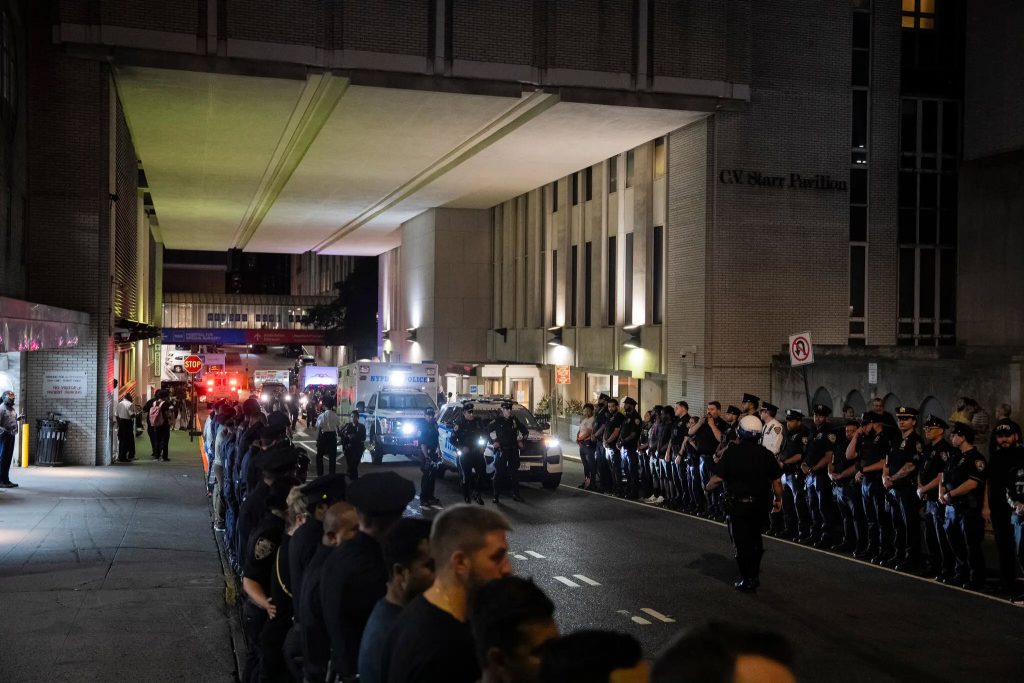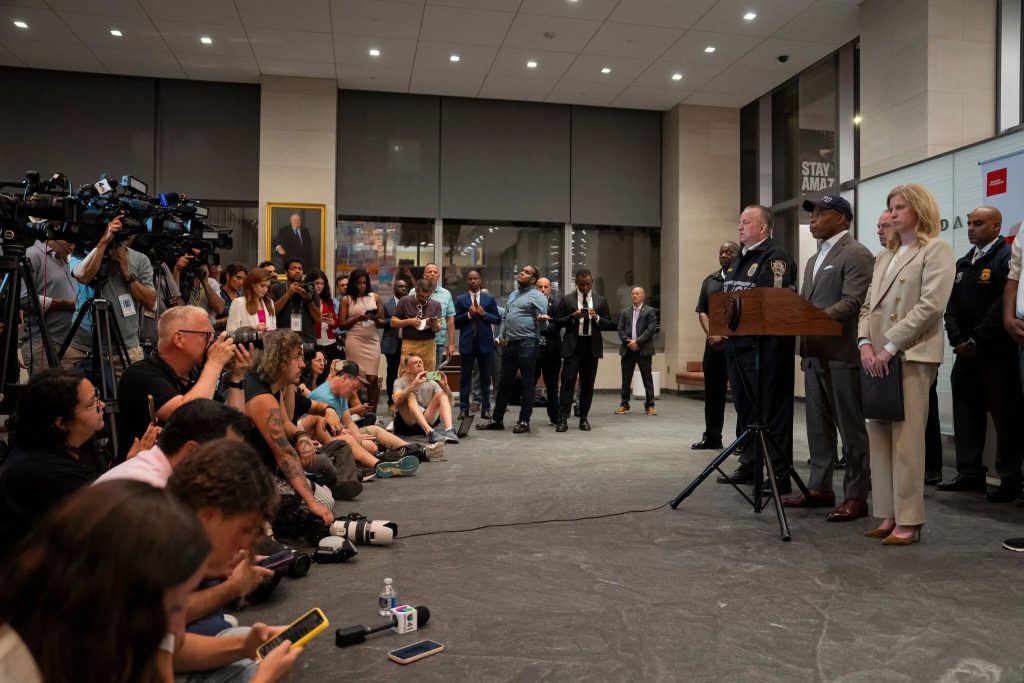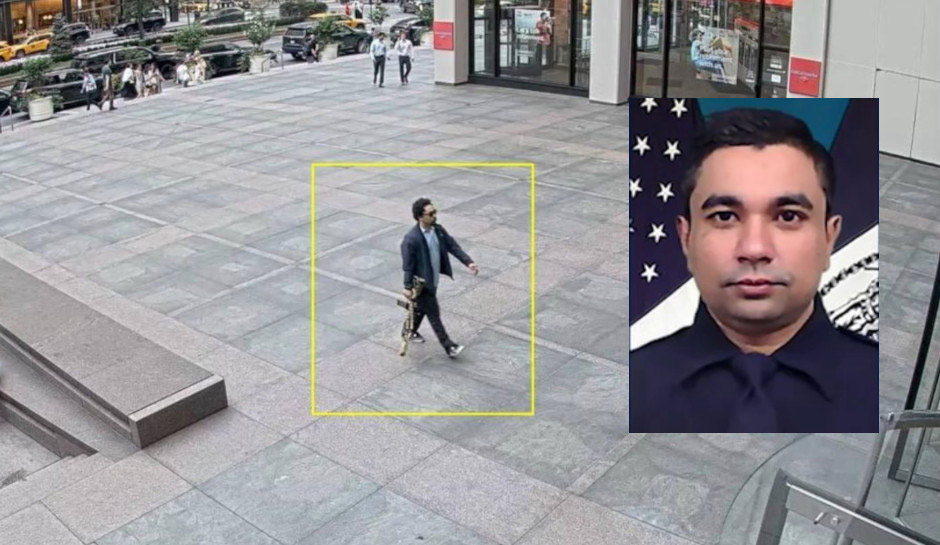Trending
Manhattan Shooting Near Times Square Leaves Five Dead
Introduction: A Tragic Night in the Heart of New York
On July 28, 2025, New York City is rocked by a tragic incident. A Manhattan shooting near Times Square left five people dead, including NYPD Officer Didarul Islam — a devoted husband, father, and community hero. The gunman, a former athlete with a history of mental illness, carried out the deadly attack in the lobby of a Park Avenue skyscraper, a building he mistakenly believed was connected to the National Football League. As the investigation unfolds, New Yorkers are left grieving a senseless loss — and a hero who died protecting others.
Officer Didarul Islam: A Life of Service and Courage
Officer Didarul Islam, 36, was killed while working an off-duty security shift through the NYPD’s Paid Detail Unit. Assigned to the 47th Precinct in the Bronx, Islam had served the NYPD for over three years. Known for his dedication and humility, he was more than a police officer — he was a pillar of his local community, a proud Bangladeshi-American, and a loving father of two, with a third child due in just weeks.
Fellow officers remembered Islam as hardworking, faithful, and deeply committed to helping others. His death sent waves of grief through the NYPD and through his neighborhood in the Bronx, where mourners gathered with food, prayers, and memories of a man who always put others first.

The Shooter: Mental Health, Football Trauma, and a Final Note
The suspect behind the Manhattan shooting has been identified as Tamura, a man with a documented history of mental illness. Investigators say Tamura traveled from Las Vegas to New York just hours before the attack and entered the Park Avenue office tower under the belief it housed NFL offices. He opened fire in the lobby, killing four people and wounding another before turning the gun on himself.
A handwritten note found on his body revealed the details. Tamura claimed he was suffering from CTE (chronic traumatic encephalopathy) — a degenerative brain condition linked to repeated head trauma in athletes, particularly football players. In his note, he expressed anger toward the NFL and pleaded for his brain to be studied after death.
“You can’t go against the NFL. They’ll squash you,” he wrote across three scribbled pages.
Tamura once played competitive football and worked in surveillance at a Las Vegas casino. The FBI confirmed he was not on any terrorist watchlist, and his motive appears to be deeply rooted in personal delusions and mental health struggles.

A City — and Two Countries — in Mourning
While New York grapples with the aftermath of the Manhattan shooting, the pain has rippled far beyond city limits. In Sylhet, Bangladesh, Islam’s extended family gathered in mosques to pray and mourn. Loudspeakers announced his death to the village where he was born — a boy who had dreamed of building a better life in America.
In the Bronx, Islam’s neighbors brought flowers, food, and condolences to his family’s home. His friends described him as generous, spiritual, and deeply focused on community service. He had recently encouraged other Bangladeshi immigrants to consider careers in public service, offering support and mentorship.
“He said, ‘Serve the community, and you’ll do fine,’” recalled longtime friend Marjanul Karim.
“Now he’s gone, and we’re all just shattered.”

Conclusion
The Manhattan shooting that claimed Officer Didarul Islam’s life was not only a horrifying act of violence — it was a profound loss to the communities he served. He embodied the American dream as a public servant, a family man, and an immigrant who gave everything to his city. While New Yorkers mourn, they also reflect on the growing intersection of mental illness, gun violence, and the pressures that ripple through American society.
As his family prepares to welcome a new baby without him, Officer Islam’s name joins a long line of heroes lost in the line of duty. He ran toward danger to protect strangers — a reminder of the quiet bravery that holds New York together.


